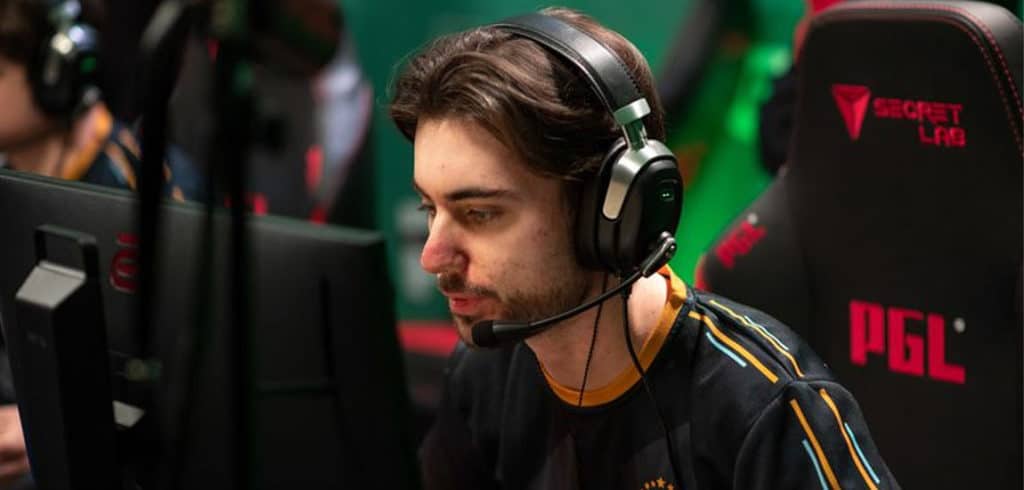Retired CSGO player Patrik ‘Zero’ Žúdel – who developed tinnitus from gaming – is an ambassador for the campaign
A Make Listening Safe Campaign UK has launched to help prevent hearing loss and tinnitus in 10m young people at risk from gaming and loud music.
It aims to educate people aged between 10 and 40 of the dangers of excessive listening to loud sounds, under the slogan, ‘Love Sound, Listen With Care’. It will run across TikTok, Twitch and YouTube, and engage with schools and social media influencers.
The launch event for this campaign will be held today (November 1st) at the Sky Guild Gaming Centre, the home of UK esports organisation Guild Esports.
Those who want to attend the launch event from 5pm to 7pm at 2a Chance Street, E16JU, can email [email protected] or register for the Make Listening Safe launch event here.
According to a press release, loud sounds heard during use of personal audio devices while gaming and at loud venues are leaving up to half of all teenagers and young adults (aged 12-35) at risk of hearing loss, with the figure of young people at risk in the UK estimated to be over 10m people.
An updated study found that unless action is taken, the number of people with hearing loss could rise by 2050 to 2.5 billion people – 1 in 4 of the total world population. And previous studies have shown that mild hearing loss doubles the risk of developing dementia.
In 2015 the World Health Organisation raised the alarm about the growing risk of hearing damage among young people and launched the Make Listening Safe initiative.
“We are facing an aural epidemic of hearing loss unless we do something. The Make Listening Safe Campaign is committed to creating a world where nobody’s hearing is put in danger due to unsafe listening.”
Stephen Wheatley, Make Listening Safe Campaign UK
The World Health Organisation also found child gamers are twice as likely to develop hearing loss from playing games with too high sound levels on their headphones than those who did not.
Safe sound dosage is 80 dB for 40 hours a week for an adult and 75 dB for 40 hours a week for a child. Unsafe levels of sounds exposure can be, for example, exposure to more than 80 decibels (dBA) for 40 hours per week (the dB equivalent of listening to heavy road traffic). Or, 101dB for 19 minutes per week (the dB equivalent of listening to live rock music).
One of the people affected by hearing loss is UK musician PinkPantheress, whose new album ‘Heaven Knows’ launches next week. Last year, the 22-year-old posted on TikTok that years of exposure to loud music had left her 80% deaf in her right ear.
Other high profile people who’ve experienced hearing loss or tinnitus from listening to or playing loud music are Rick Astley (who now wears hearing aids in social situations), BBC broadcaster and drummer Owain Wyn Evans and singer/producer will.i.am.
The Make Listening Safe Campaign UK campaign has the support of Great Ormond Street Hospital, Tinnitus UK, the RNID, NHS England and the British music industry body the BPI.
The WHO, along with ITU is the International Telecommunication Union (ITU), the United Nations specialised agency for information and communication technologies, has set a global standard for safe listening personal audio devices and systems and is working with manufacturers of smartphones and headphones to promote their implementation.
WHO has also set a standard for safe listening entertainment venues and is working to make recommendations about safe listening features in video gaming hardware and software.
7 stats about tinnitus and hearing loss in gamers from the Make Listening Safe Campaign UK

The World Health Organisation carried out a literature review focused on the relationship between gaming, esports and hearing. The review looked at evidence from published studies, which predominantly focused on children and PC/video games. It found:
- Gamers had a 52% higher likelihood of self-reported tinnitus compared to non-gamers.
- Gamers were more than twice as likely to have measurable high-frequency hearing loss compared to non-gamers
- Boys played at louder volumes and for more time than girls
- Studies included in this review report an average weekly gaming duration of 3-4 hours/week for children and an average loudness of 85 to 90 dB. These durations and levels would exceed permissible sound exposure levels for children by at least 10dB
A cross-sectional online survey of 488 gamers and esports players from 92 countries (average age 28) also found:
- Nearly half of video game players (42.9%) reported experiencing a ringing in their ears after playing
- Over half (53.3%) reported fullness or fuzziness in their ears
- Among esports players, 45.9% reported a ringing in their ears, and 50% reported fullness or fuzziness
‘The most important thing is to realise how really vulnerable we are and how mentally devastating it could be’ – former CSGO player Zero
One of the Make Listening Safe Campaign UK’s ambassadors is recently retired esports player Patrik ‘Zero’ Žúdel who developed tinnitus from playing CSGO. Patrik, 24, was playing the game loudly five days a week, eight hours a day.
Zero said: “I remember I was getting to bed after a full day of gaming and I heard this really loud ringing. That bothered me so I had a hard time sleeping because it was so much in the foreground and it’s never really left since. It got a bit quieter, but it never really left.
“For sure it had impacts on my mental health. I would say it made me a bit more paranoid about my future sound exposure.
“I kind of realised what the sound exposure really means. It’s started to pay more attention to both gaming and both sound exposure outside of gaming being when I go across the street and I hear a Jack Hammer, I kind of go around or if I go to the movie theatre, I have earplugs in.
“I think the most important thing is to realise how really vulnerable we are and how mentally devastating it could be. I constantly hear a high pitch sound. You hear it when you wake up, when you go to sleep.
“To me, there isn’t such a thing as silence anymore, and I think if people will try to empathise with that notion of, imagine your life without silence, I think that could lead to people being more careful.”
“For me, a very important thing was also realising that hearing damage can happen not as a result of one specific instance of a very loud sound, but of exposure over time of loud, but not too loud, sound. Your ears don’t need to hurt for the sound to be loud enough to hurt you over time.”
Zero, former CSGO player
World Health Organisation Technical Lead (Hearing) Dr Shelly Chadha, added: “Hearing loss caused by loud sounds and unsafe listening is both permanent, and preventable. As key stakeholders in health, we need to act to make prevention possible.”
Mark Laureyns, Co-Chair of Global MLSC, said: “Our Make Listening Safe Campaign UK is not about spoiling the fun. We should enjoy the sounds we love, like our favourite music, the sounds of life and nature, at their best. But if we do this responsibly, we can ensure we can keep enjoying these sounds for the rest of our lives.”
Stephen Wheatley, Chair of MLSC UK, commented: “We are facing an aural epidemic of hearing loss unless we do something. The Make Listening Safe Campaign is committed to creating a world where nobody’s hearing is put in danger due to unsafe listening. The launch of the Make Listening Safe Campaign UK is the first step in making individuals aware of those activities which might be classed as unsafe listening so that they can take steps to look after their own hearing.”
There’s more info on the Make Listening Safe Campaign website

Dom is an award-winning writer and finalist of the Esports Journalist of the Year 2023 award. He has almost two decades of experience in journalism, and left Esports News UK in June 2025.
As a long-time gamer having first picked up the NES controller in the late ’80s, he has written for a range of publications including GamesTM, Nintendo Official Magazine, industry publication MCV and others. He also previously worked as head of content for the British Esports Federation.


